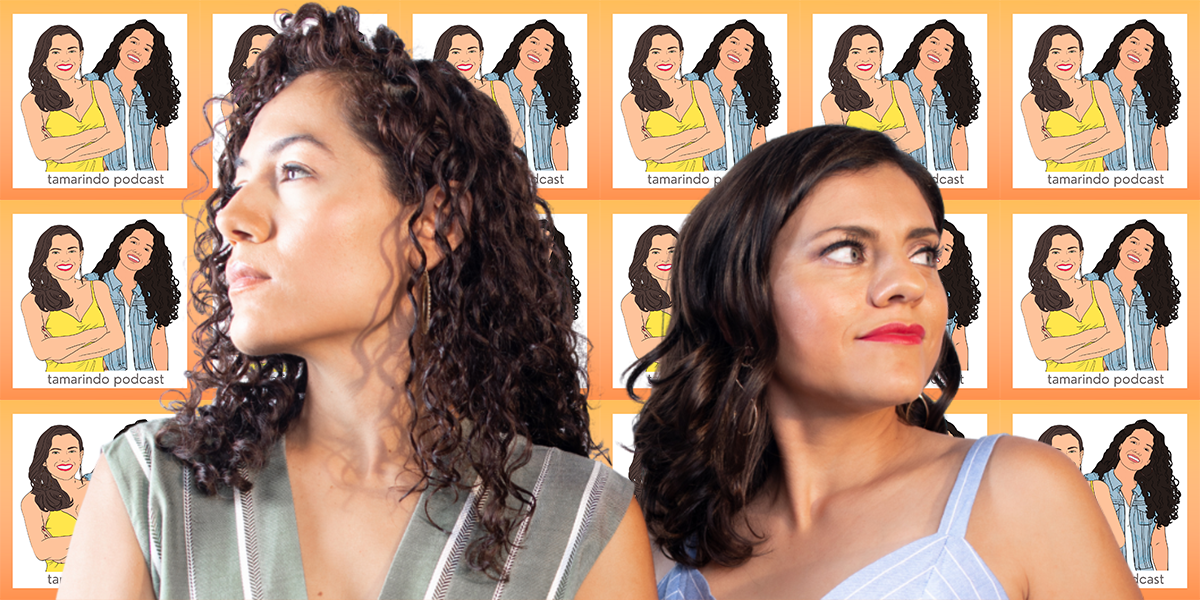The Tamarindo Podcast began as a labor of love in 2016 with Brenda Gonzalez as its host. She later met Ana Sheila Victorino at a panel, where the two became friends and where Brenda got Ana Sheila to agree to co-host.
Since then, the two have talked about things that affect millennial women and nonbinary folks through a cultural and social justice perspective. Whether it’s routines, books, pop culture, or even trauma, the duo always manage to keep the conversation lighthearted, informative, and gentle. Some of their former guests include Curly Velasquez, Prisca Dorcas Mojica Rodríguez, and Aida Rodriguez. I had the chance to ask them about their upcoming plans, habits, and advice for potential Latinx/BIPOC podcasters!
INGRID CRUZ: Tamarindo podcast has evolved a lot since it began: what do y’all have in store for us for the rest of the year?
BRENDA GONZALEZ: The show really hit its stride when Ana Sheila joined. The podcast has always been about using levity to shine a light on issues that affect the Latinx community, sort of like a political center. We [recently had] a crossover episode planned with another podcast called Latinx Lens where we explore representation in media and the need for more Latinx reviewers. We’re also going to talk about money and the pipeline of Latinos working in tech.
ANA SHEILA VICTORINO: We’ve formalized and planned way in advance. We think about schedules, the different episodes, and how they will go together. We have a plan about things we want to touch on and make sure we never lose sight of the politics.
We want people to be activists and become leaders in their community, but you can’t be a good advocate for your community if you yourself aren’t well.
Brenda Gonzalez
INGRID CRUZ: You talk a lot about habits in Tamarindo Podcast. What are some habits or tricks for habit-building you’ve picked up that you really enjoy?
BRENDA GONZALEZ: One of the good practices we do now is incorporate calma moments and we like to ask our guests where they find their calma. We also talk about the calma of the week for us. We want people to be activists and become leaders in their community, but you can’t be a good advocate for your community if you yourself aren’t well.
ANA SHEILA VICTORINO: One thing that’s helpful for me is graceful accountability. What I mean by ‘graceful accountability’ is having something that helps you follow through on whatever it is you want to start. For example, if you want to start working out, accountability can mean finding someone to do it with. You can use an app to sign up for classes and you know you’ll be charged if you don’t go, right? A lot of the time we’re ambitious when creating new habits but the graceful part is knowing that you’re going to mess up. The best thing you can do is have grace and know that it’s going to take a while.
INGRID CRUZ: Podcasts are expensive to produce. What were some of the biggest surprises you dealt with?
BRENDA GONZALEZ: When we started, one big advantage was that my husband Jeff produces music on the side so we had access to a studio. I have never self-produced to make the podcast. I have a vision for the episode and know what editing notes to give, but I’ve never produced audio. Once we got a little more established, about three or four years, later we were able to sell small ads and have enough money to hire an editor.
ANA SHEILA VICTORINO: I think the greatest cost is your time. It’s hard to make money from a podcast so ultimately it’s expensive because you’re allocating your energy. You really don’t get sponsorship until you’re a certain size.
In the past, I would hide difficult things. I grew up not wanting to share my problems. I’ve found that change within myself. Obviously, you want to make sure you’re in a safe space, but I’ve found this process to be healing.
Ana Sheila Victorino
INGRID CRUZ: How do you stay fresh after having covered so many topics? Where do you go for inspiration/self-care?
BRENDA GONZALEZ: Our inspiration comes from the genuine kind words we get when someone feels like they hear themselves in this podcast. [They say it’s] like they’re listening to their home girls talk about politics. There was one review that we got that was so authentic – [they said] that being a 45-year-old queer Latinx, [they don’t often] often find spaces online and in person that feel like they can come in with all their identities. We know how thirsty our community is for more voices like ours, so that’s what fuels us.
ANA SHEILA VICTORINO: It’s actually been really healing for me to share. In the past, I would hide difficult things. I grew up not wanting to share my problems. I’ve found that change within myself. Obviously, you want to make sure you’re in a safe space, but I’ve found this process to be healing.

